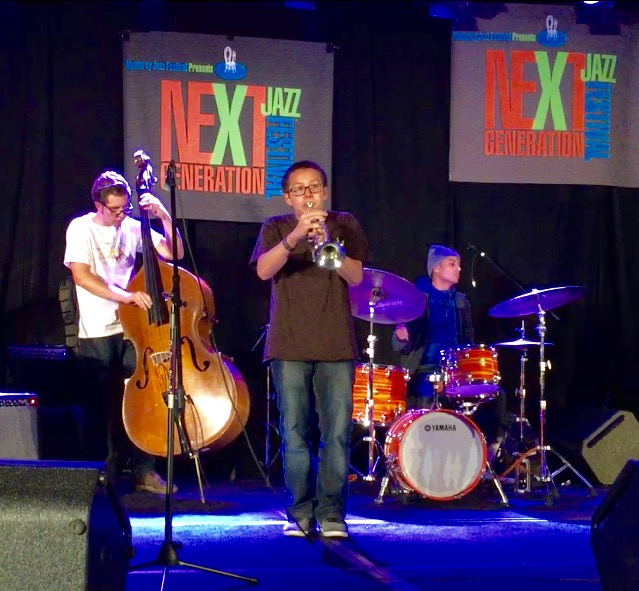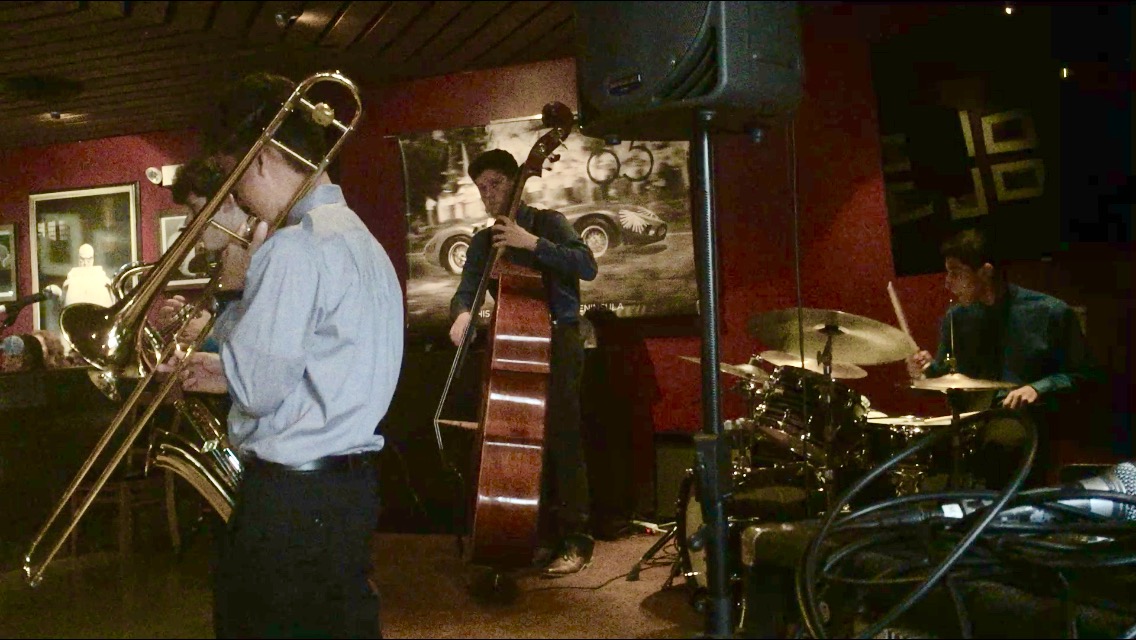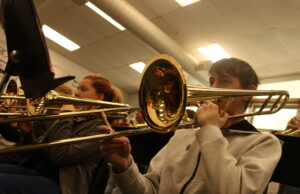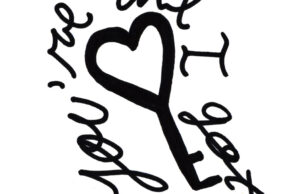Create and Compete: Jazz bands take music to a new level of creativity
As the cymbals tap away consistently like the sound of quivering glass, saxophones, trombones and trumpets blare in syncopation with a rhythm of long-short notes. The notes climb higher and higher, swirling as they reach the climax, then drop to silence as the piano rings bright against the light backdrop of cymbals and toms. The chords bounce back and forth amidst scaling riffs; they’re not quite minor, but not quite major either. That’s because they’re jazz chords, improvised and filled with sevenths. And this is the jazz band’s performance.
Jazz band is a part of the band program and consists of several small jazz combo groups and two big bands: the advanced Jazz 1 and the beginning Jazz 2. Each band consists of about 18 students, including musicians who play saxophone, trumpet, trombone, piano, bass or double bass, drums and guitar.
“The big bands focus on playing more formal arrangements, actual compositions, and there are spots of improvisation in there, but in a combo, the focus is on improvisation, so there’s a lot less written music,” Dennis Crystal, band teacher and jazz band director, said. “The kids who are in the combo get good at just making music happen, and that experience helps them be successful playing in just about any style.”
Four times a week, the bands meet for one hour after school and practice a multitude of pieces in various styles, such as swing, contemporary, mamba, and ballad, in preparation for the festivals and competitions of the spring season.
“We try to learn as much music as we can and get it to as high of a performance level as we can, make it as polished and refined as possible, and then just keep doing that process over and over again….” Crystal said. “But the goal is to get you as quickly as possible into the actual historically meaningful jazz repertoire. The goal ultimately would be to play different songs as every single competition and still do as well.”
Improvisation is a major part of the the pieces and the practice, as students must learn how to create tunes, scales and chords on their own from base notes. Various instrumentalists get their own improvisational time between sections of written music during one piece.
“It’s on the spot, but there’s chord changes so you know which notes to play,” Kevin Chen, a sophomore in Jazz 1 who plays alto saxophone, said.
So far this year, they have participated in two competitions and one venue, including Newbury Park High School’s own eighth annual Jazz Festival on March 18-19. On the second day, 27 big bands and 12 combos from middle and high schools from across southern California played in the Performing Arts Center and cafeteria throughout the day, receiving scores from judges based on tone quality, rhythm, soloing, and intonation.
“I forget the exact scores, but this is our first competition where we were able to actually compete,” Lorenzo Siciliano, a junior in Jazz 1 playing drums, said. “We had someone missing (in the first competition) so we couldn’t compete, so we just went there for the scores. So this one was the first competition, and we did pretty good.”
In addition to the competition day, there was an opening night the day before, which featured performances from Jazz 1 and a professional jazz group, L.A. 6.
“I think it was better when we played on Friday night,” Siciliano said, “but (Saturday’s performance was OK.”
Overall, the festival went well as it provided the jazz bands competing experience while also serving as a major fundraising event for the band program through concession stand sales and $10 concert tickets.
“We ran it pretty smoothly and raised around $5000 dollars. As for the band performance, we also did very well, but there are obviously a lot of errors we can improve on like intonation and rhythm,” Chen said.
On April 8-10, the bands also performed at venues in the prestigious 46th Monterey Next Generation Jazz Festival, a festival which Crystal hopes Jazz 1 will eventually be able to successfully audition and compete in. In the next two months, they hope to compete at the Western States Jazz Festival, Westlake High School Jazz Festival, and Fullerton College Jazz Festival.
In the meantime, the jazz bands continue to practice for improvement, especially Jazz 2 students, many of whom are playing an instrument for the first time or had to switch to a new instrument different from their regular band instrument.
“It takes a lot of hard work and dedication to learn how to play an instrument, but it’s entirely possible,” Crystal said. “A lot of kids don’t know how to play an instrument but most adults look back and wish that they had. Anything that’s going to get you to know how to read and play formal written music has a benefit for you socially, emotionally and intellectually.”





